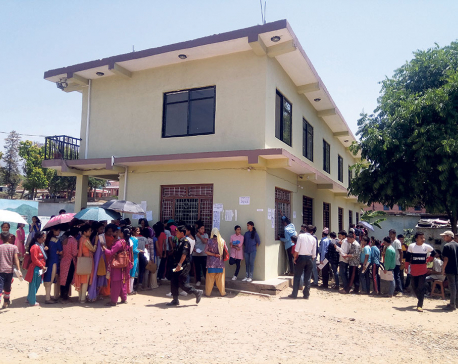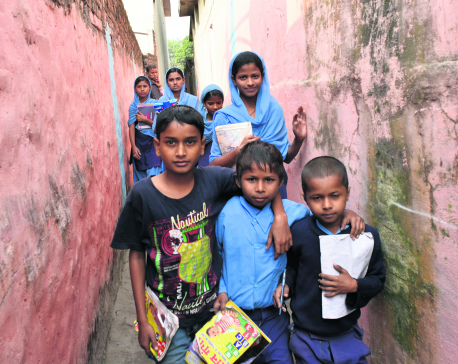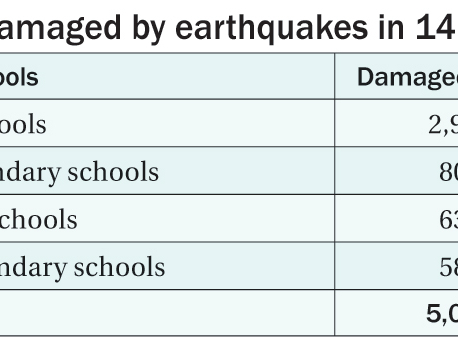
OR
More from Author
If students are guided well by parents and teachers, they will be able to make their academic dreams come true.
School education (from Grade I to XII) marks an important turning point in academic life of students. But as students’ educational requirements become more stringent they experience stress, which stems from the gap between our expectations and reality. This stress arises due to demands on students from outside sources, such as family, school, relatives and friends. Academic, financial and health factors brew up a perfect storm of stress in students’ minds and they fail to achieve the goals they set.
Academic stress arises from parental pressure for high performances, constant anxiety of grades, competitions etc. This situation may lead students to take wrong decisions or even addiction of alcohol and drugs. In Nepal, higher grades are considered as a passport for higher studies, particularly in the field of Medicine and Engineering. This makes our students obsessed with idea of achieving better grades, by fair or foul means.
School, family and society cause academic stress. Too much home-works, exam pressures, poor academic performance, competition with friends, poor interpersonal relationship with teachers and friends, heavy contents to master in a limited time, unscientific academic evaluation procedure, high student-teacher ratio, unhealthy teacher-student interaction, ineffective teaching methodology, poor reading habits of students, high expectations of parents and teachers come as a source of agony for students.
The family status, socio-economic status and marital discord in the family also lead to stress in adolescents.
Parents and school play an important role in cognitive, social and emotional development of children. They are, therefore, supposed to be aware of their children’s behaviors, interests, abilities and emotions. They must build trust with their children, pay respect to their interests, encourage them to express their feelings and maintain healthy friendship. They should teach children about harmful effects of drugs, inspire them to read extra books and newspapers and help them engage in sports because they have therapeutic effects on students. The more they share their problems with parents and teachers, the better they will understand each other.
When we see that students do not communicate much, prefer isolation, worry a lot and do not concentrate on studies and thus fail to complete assignments on time, lose temper or change eating and sleeping habits, we should know that they are suffering from academic stress. So what should be done?
Students can reduce stress if they are encouraged to manage time wisely, get organized, eat healthy food, have enough sleep, develop optimism, do regular exercises (Yoga, meditation) and surround themselves with supportive people. They should be taught to adapt to life’s unavoidable realities, know their limits, be realistic about themselves, maintain a positive mental attitude, and build up sound interpersonal relationship with family, school and friends. Students are not supposed to set themselves on fire to keep other people warm.
Parents and schools should let the children go ahead as per their interests and abilities without imposing on them their interests. It is not the load that may break students down, but the way they are carrying it. Students must be strong enough to handle their challenges skillfully, wise enough to find solutions to the problems, and capable enough of doing whatever needs to be done.
Students are not robots. If students are guided well by parents and teachers as per their abilities, they will be able to make their academic dreams come true without any stress. Albert Einstein once said: “Everybody is a genius. But if a fish is judged by the ability to climb a tree … it will live its whole life believing that it is stupid.”
The author is Founder Principal of Universal College, Kathmandu univcollege74@gmail.com.np
You May Like This

More students switching to community schools from private schools
SURKHET, April 19: Bandana Khadka of Birendranagar-3 recently admitted her two sons to one of the oldest community schools of the... Read More...

In lack of good schools in Siraha, children go to Indian schools
SIRAHA, Dec 11: There are ample of private and community schools in the district. However, many Nepali children go to Indian... Read More...

Quake-hit schools in 31 districts to be rebuilt within 3 years
KATHMANDU, Aug 10: Hundreds of students in earthquake-hit districts will have to study under tents and inside cracked buildings risking... Read More...





Just In
- CM Kandel requests Finance Minister Pun to put Karnali province in priority in upcoming budget
- Australia reduces TR visa age limit and duration as it implements stricter regulations for foreign students
- Govt aims to surpass Rs 10 trillion GDP mark in next five years
- Govt appoints 77 Liaison Officers for mountain climbing management for spring season
- EC decides to permit public vehicles to operate freely on day of by-election
- Fugitive arrested after 26 years
- Indian Potash Ltd secures contract to bring 30,000 tons of urea within 107 days
- CAN adds four players to squad for T20 series against West Indies 'A'














Leave A Comment